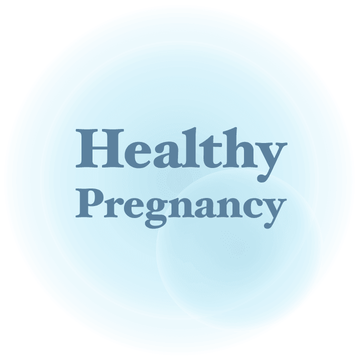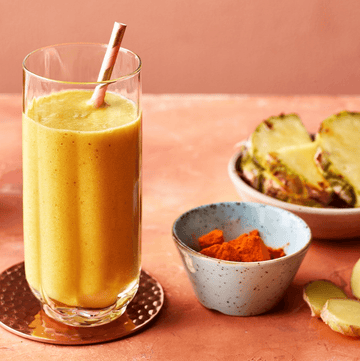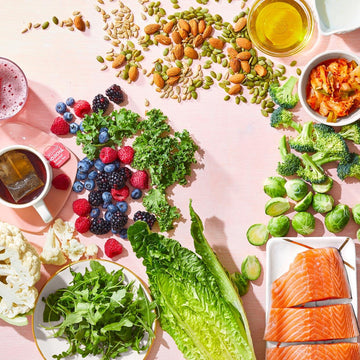
You have conceived your child. Congratulations!
Truth be told, your heart, brain and body, your entire life will be changed forever.
Let us please look at this from a pure, simple, and positive/optimistic perspective.
The female body is a truly amazing creation. We have been blessed with the ability to create and grow life inside our bodies. It can be an intense, scary, miraculous experience all in one.
The way in which the female body is set up prior to conception can and will significantly impact and dictate things such as growth, development, and overall health of your baby. The pre-pregnancy state will most certainly impact a mother’s overall health and post-pregnancy health as well.

What about the key nutrients needed for a healthy pregnancy?
To start, growing a baby does not mean that you are ‘eating for two’ so toss that old school “logic” out the window! This concept will only open you to the potential for poor food choices and over-consumption. Your body just does not need overeating or poor nutritional choices. It will lead to gaining a lot more ‘baby’ weight than necessary and you may even struggle to bounce back to your desired health/weight goals after the baby arrives.
In order to obtain the additional 200 – 500 extra ‘calories’ you will require now to accommodate the growing fetus as well as producing extra blood (especially in the first trimester), you will need to do a few things.
For starters, reducing nutrient-void foods like simple carbohydrates, or processed foods such as packaged and refined foods. The prior examples will not provide you with the necessary nutrients to support your body and the baby. In other words, you will need to add nutrient dense foods to account for any additional caloric requirements.
I love to inform you that many of the necessary vitamins for a healthy pregnancy can come from the foods we eat! Grass-fed, organic animal products including butter, cheese, eggs, yogurts, bone broths, organ meats, blackstrap molasses, fermented foods, and of course lots of green vegetables are all examples of this.

In no specific order of importance, the following are some of the critical nutrients to ensure you consume during your pregnancy.
-
Choline
As previously talked about in the “Fat and Brain Health” blog. -
Choline is the foundational substance for cellular membrane development.
-
It is critical for liver function, fat breakdown and bile production.
-
It supports a healthy gut lining.
-
Folic Acid (lab made, synthetic) vs Folate (nature produced)
-
Folate comes in 2 active forms: methyl folate & folinic acid and is essential for neural tube development.
-
Vitamin A (found in cod liver oil) supports healthy DNA, immune system function, lung health, healthy mucous membranes, digestive tract, and skin health.
-
Omega 3’s
As well, previously mentioned, I cannot stress enough the critical importance of consuming omega-3 fatty acids since the growing baby requires high levels for its growth. -
Your microbiome – healthy gut bacteria – can and should be supported through a good quality probiotic supplement as well as with foods such as sauerkraut, kimchi, kefir, kombucha.
Eating well pre and during pregnancy works to prevents complications, including preterm birth, high/low blood pressure, severe swelling, gestational diabetes, preeclampsia and more. If you are concerned or experience any of these, an RHN or holistic specialized practitioner would be of great value and support in these areas.

There is reason behind the ‘classic’ pregnancy food cravings – pickles and ice-cream, – vitamin C and good bacteria from properly made pickles and fat soluble vitamins from animal fats, respectively. Consuming higher good quality fatty foods prior to pregnancy reduces the likelihood of these kinds of food cravings during your pregnancy. Some good options to reach for in the case of fatty or sour foods are butter, cream, egg yolks and true lacto-fermented foods such as kimchi or sauerkraut.

Morning sickness? Well that is common in about ½ of all pregnancies. The cause for many, from excess hormone levels, to protective mechanism, to insufficient bile production. Morning sickness is rare to non-existent in truly primitive cultures, indicating it is not a natural response to pregnancy, but a result of factors within in our civilized cultures. Some ways to go about supporting your body through morning sickness are; sipping on homemade bone broth with coconut milk throughout the day, acupuncture, ginger tea or ginger capsules, a form of B6 (pyridoxal-5-phosphate) in supplemental form or from bananas or liver, ox bile with meals (to help fat digestion), plenty of lacto-fermented foods (sauerkraut, kimchi), plenty of fat at each meal and magnesium salt baths or magnesium rich foods.

As a general rule, you should gain roughly 5 pounds in the first 3 months and 1 pound per week the other 6 to gain anywhere from 25-35 pounds during pregnancy.
Where is the weight gain accounted for:
-
Baby – 8 lbs
-
Placenta – 2 – 3 lbs
-
Amniotic Fluid – 2 – 3 lbs
-
Breast tissue – 2-3 lbs
-
Increased blood supply – 4 lbs
-
Extra fat stores – 5 – 9 lbs
-
Uterus Increase – 2 – 5 lbs
It is helpful to have guidelines but the last thing you should do is worry about your weight too much. As long as you are nourishing your body in order to optimally nourish your baby’s growth, you are doing great!

Prenatal Vitamins? So many people will reach for these without hesitation, however they are typically concoctions of difficult-to-absorb (synthetic) vitamins, artificial colours and harmful additives. There are some prenatal products available that are higher quality and contain some additional ingredients to better support your pregnancy. It’s important to ask questions and talk to a RHN or holistic midwife or practitioner if you choose to take a prenatal vitamin.
It is also very important that your trust ‘your gut’ when it comes to foods to eat, and not to eat. Your body is an intelligent system and will indicate if you should be eating some foods or not in order to support the health and growth of your baby as well as you maintain your overall health and wellness. Start becoming more in tune with your body! Listen to what feels right for your and what resonates with you.
Lastly, remember to drink lots of clean water, sleep and rest while you ‘build-a-baby’ with your miraculous body.
References:
The Female Brain, Louann Brizendine, M.D (2006).
The Nourishing Traditions Book of Baby & Child Care, Sally Fallon Morell & Thomas S. Cowan, MD. (2013).
Cara Janzen, H. BSc. RHN is an AURA Community member with a belief to help make you rich – nutritionally! As a Registered Holistic Nutritionist, she is equipped with a B.Sc. and have a background in Biological Sciences and Psychology.






